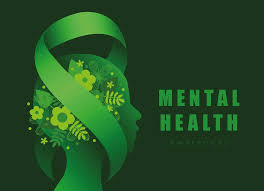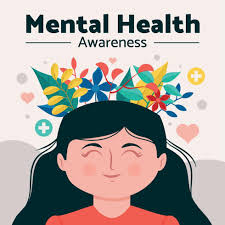Introduction to Mental Health Awareness.
The importance of mental health awareness has increased significantly in recent times. As we approach 2025, the discourse surrounding mental well-being has undergone a significant transformation. The days of shame and secrecy are long gone; individuals are now actively voicing their struggles and seeking assistance. Furthermore, there have been remarkable developments in research and treatment methods, making it crucial for everyone to educate themselves about mental health.
In this post, we will address common misunderstandings surrounding mental health that persist in our society. Additionally, we will examine recent advancements in treatment, such as the increase in teletherapy services and the incorporation of mindfulness into daily routines. Whether you are facing personal struggles or assisting loved ones coping with difficulties, there is valuable information to be gained as we navigate through this ongoing mental health crisis. Statistics emphasize the urgency of these matters for both adolescents and men. Join us for an exploration of the latest developments in mental health awareness for 2025!
Common misconceptions about mental health.
Mental health is often hindered by misconceptions that can lead to a lack of understanding. Many believe that mental illness solely impacts a specific demographic, however, it actually crosses boundaries of age, gender, and socio-economic status. A common misconception is that individuals struggling with mental health are weak and just need to toughen up. This false belief promotes damaging stereotypes and discourages those in need from seeking assistance.
While there is a common misconception that therapy is only necessary in times of crisis, the truth is that regular sessions can greatly benefit anyone seeking to improve their emotional well-being or effectively navigate challenges in life. There is a belief that mental health issues are not visible and therefore not valid. However, these conditions can manifest in different forms and can greatly affect daily life, even if they are not easily noticeable. Acknowledging these misunderstandings is crucial in creating a more supportive community for those dealing with mental health struggles.
Advancements in mental health treatments.
In the realm of mental health, there have been significant developments in treatment methods that have significantly altered our approach to addressing psychological well-being. Novel therapies are surfacing as a result of cutting-edge research in this field, honing in on particular problems with accuracy. An important advancement in the field has been the incorporation of neuroscience into treatment plans. Approaches such as neurofeedback and transcranial magnetic stimulation provide promise for conditions that were previously considered difficult to address.
Additionally, there is a growing trend towards personalized medicine. Through genetic testing, antidepressant prescriptions can now be customized to suit each person’s unique reactions. This shifts us away from the traditional approach of using a single treatment for everyone. Digital therapeutics play a vital role in improving established techniques, particularly through the use of specially designed apps for cognitive behavioral therapy (CBT). These apps equip users with necessary tools to effectively manage symptoms of anxiety and depression at any time and in any location. As additional research reveals successful methods, there is a growing emphasis on holistic approaches as well – incorporating medication with lifestyle adjustments, such as diet and physical activity, has been proven beneficial for numerous individuals struggling with mental health issues.
The rise of teletherapy and online resources.
Teletherapy has revolutionized the field of mental health, providing unprecedented accessibility by eliminating geographical limitations. Clients now have the ability to easily connect with therapists from the convenience of their own homes. The internet has seen a significant rise in available resources. Coping strategies, guided meditations, and support groups are easily accessible through websites and apps. This shift to digital platforms caters to various needs, making mental well-being attainable for a larger audience.

The pandemic greatly hastened this movement as individuals searched for secure environments to openly express their emotions without the usual limitations. As a result, teletherapy served as a crucial source of support for those navigating emotional turmoil. In addition, there has been a growth in free online therapy programs providing crucial assistance for those unable to afford traditional services. The growing recognition of mental health concerns among celebrities also adds a sense of urgency to these initiatives. As technology continues to advance, access to crucial resources for mental health will also improve. This is a promising development in addressing the pressing challenges of mental well-being today.
Incorporating mindfulness and self-care into daily routines.
Incorporating mindfulness and self-care into your routine is crucial for preserving mental well-being. By incorporating simple practices into your daily life, you can easily prioritize these important tools. Consider beginning with a brief five-minute session of focused breathing every morning, as this can set a beneficial tone for the day ahead. Integrate snippets of appreciation into your daily routine. Write down three things you value, regardless of their size. This change in mindset can greatly improve your mood.
It may be beneficial to incorporate brief pauses into your workday for stretching or stepping outside to breathe in some fresh air. These small breaks can help declutter your thoughts and alleviate stress.Evening routines are important as well; consider taking a soothing bath or enjoying a good read before going to sleep. These practices send a message to your mind that it’s time to relax, which can help improve the quality of your sleep.By being intentional and consistently incorporating mindfulness, one can greatly improve their emotional well-being without having to spend long periods of time.
Future predictions for mental health awareness and treatment
As we peer into the future, we can anticipate significant changes in the realm of mental health awareness. The focus on preventative care will revolutionize how society tackles issues of mental well-being. Awareness initiatives are also predicted to incorporate advanced technologies, such as AI, to provide tailored assistance. Recent updates on mental health crises have revealed a growing awareness towards issues faced by young individuals, specifically teenagers. The most recent statistics from 2024 highlight concerning patterns that emphasize the importance of prompt intervention and educational initiatives within schools.
The awareness surrounding men’s mental health is also growing, as we see more prominent male figures taking on advocacy roles. This change has the potential to lessen the stigma and encourage individuals to seek help without hesitation or worry of being judged. The growing popularity of teletherapy will continue to provide access to therapy through various free online programs designed for those who require it. With an increase in available resources, there is a wider outreach and involvement within diverse communities, ultimately resulting in improved accessibility to treatment for all individuals.
Conclusion.
The field of mental health is developing rapidly, thanks to groundbreaking research and advancements in treatment. As a result, the stigma surrounding mental illness is gradually fading away. Recent findings have shown that having understanding and support are crucial in dealing with these challenges. As we navigate this terrain, it’s crucial to acknowledge prevalent misunderstandings about mental health. There are still those who subscribe to the belief that mental illnesses indicate frailty or can be overcome with a quick fix. These misconceptions impede growth and erect obstacles for those in need of support.
The emergence of teletherapy has revolutionized the accessibility of mental health resources for individuals. Through free online therapy programs, professional assistance is now available to all, regardless of location or financial status. This shift reflects a larger trend towards prioritizing mindfulness and self-care in daily routines. Providing support for those close to us who are facing mental health challenges involves demonstrating empathy, patience, and understanding. Identifying the warning signs can lead to timely interventions, which are especially important in today’s climate where 2024 statistics indicate an increase in teens struggling with anxiety and depression.
Furthermore, we witness an increase in efforts promoting men’s mental health awareness, supported by various initiatives and the advocacy of celebrities. The act of prominent individuals sharing their personal experiences also plays a crucial role in breaking down stigmas surrounding male vulnerability. This marks a significant milestone towards addressing societal divisions caused by societal expectations of gender roles. As we look forward, projections suggest an ongoing emphasis on innovative approaches to mental healthcare. As technology continues to advance, it is likely that we will see a rise in personalized treatment solutions catered to the unique needs of various populations.






